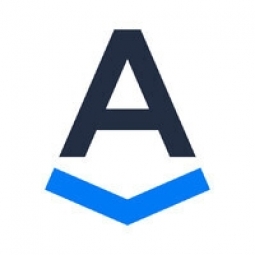Technology Category
- Platform as a Service (PaaS) - Application Development Platforms
- Sensors - Haptic Sensors
Applicable Industries
- Education
- Telecommunications
Use Cases
- Traffic Monitoring
- Transportation Simulation
Services
- System Integration
- Training
About The Customer
Traffic Force is a prominent traffic management provider in Western Australia. The company was founded by Erin Studsor and Tegan Studsor in Bunbury, WA in 2006. Over the years, they have expanded their operations to include two additional depots in Maddington and Albany. Traffic Force differentiates itself from competitors by offering comprehensive traffic management solutions of the highest quality. The company also runs a traffic management training business, AusQ Training. Traffic Force is committed to supporting local communities and takes pride in being 100% WA owned and operated since its inception.
The Challenge
Traffic Force, a leading traffic management provider in Western Australia, was facing challenges with their server-based system. The system was outdated and not evolving with the times, leading to a poor user experience and limited functionality for their traffic controllers, leading hands, and supervisors. The system only allowed for job allocation based on competency, with limited interaction for the staff. The process of notifying and confirming shifts was time-consuming, requiring individual calls to each traffic controller. Additionally, the company was struggling with paper-based timesheets, especially for crews working in remote areas. The process of collecting timesheets was cumbersome and often delayed due to lack of reception or the need for the crew to fax or scan the documents.
The Solution
Traffic Force decided to implement Assignar, a cloud-based solution, to overcome their challenges. Assignar provided a platform where all traffic controllers could access their job information. The system also allowed for bulk texting, significantly reducing the time spent on confirming shifts. The company could now send a bulk text and run a report shortly after to see who had confirmed. Assignar also digitalized the timesheet process. The timesheets were submitted in real-time, and supervisors only needed to approve them before they went for the accounting process. Other forms like pre-start forms, communications diary, and incident reports were also digitalized, eliminating the need for crews to rush to a scanner or back to a depot. The implementation process involved self-training and one-on-ones with a Customer Success Manager, followed by rollouts to each department. To increase usage and receptiveness to the new technology, Traffic Force incentivized staff through internal competitions.
Operational Impact
Quantitative Benefit

Case Study missing?
Start adding your own!
Register with your work email and create a new case study profile for your business.
Related Case Studies.

Case Study
Vodafone Hosted On AWS
Vodafone found that traffic for the applications peak during the four-month period when the international cricket season is at its height in Australia. During the 2011/2012 cricket season, 700,000 consumers downloaded the Cricket Live Australia application. Vodafone needed to be able to meet customer demand, but didn’t want to invest in additional resources that would be underutilized during cricket’s off-season.

Case Study
SKT, Construction of Smart Office Environment
SK T-Tower is the headquarters of SK Telecom. Inside the building, different types of mobile devices, such as laptops, smartphones and tablets, are in use, and with the increase in WLAN traffic and the use of quality multimedia data, the volume of wireless data sees an explosive growth. Users want limitless Internet access in various places in addition to designated areas.











